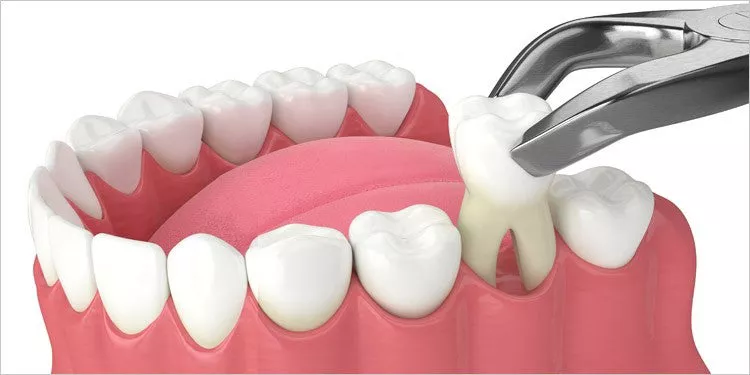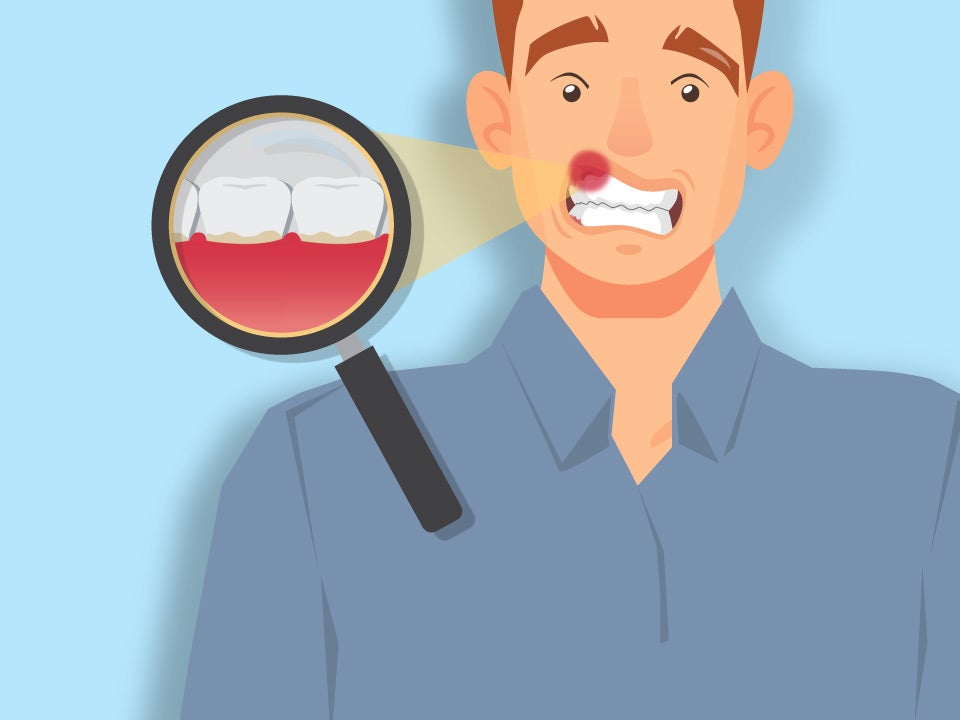Tooth extractions are something that most people face at one point or another throughout life. There are several reasons you may be facing a tooth extraction, including:
- Dental injury
- Severe decay
- Advanced gum disease
- Dental abscess
- Impacted teeth
- Crowded teeth
When Is a Tooth Extraction Necessary?
Teeth extractions can also be part of the orthodontics process. Wisdom teeth are often removed to prevent future issues and maintain the alignment that was achieved through braces. An orthodontist may also recommend tooth extraction if your teeth are overly crowded.
Tooth Extraction Healing Stages
Simple Extractions
Surgical Extractions
What Should a Tooth Extraction Look Like When Healing?
The extraction site can look sunken or has a small crater in it once the swelling goes down. This is because the root from the tooth was also removed and left a void in the jawbone. In some situations, people need a bone graft to build the area back up and prepare for a dental implant. Your dentist will talk to you about options for replacing the tooth you had extracted if necessary. If your jawbone is healthy, you may be able to get a dental implant without needing a bone graft.
If you notice that your extraction site is still bleeding or continues to be inflamed and painful beyond the normal healing time, it is important to get in touch with your dentist. Possible issues after getting a tooth extraction include infection and dry socket. Both of these issues need to be addressed by your dentist.
What Can I Eat After a Tooth Extraction?
- Eggs
- Mashed potatoes
- Soup
- Yogurt
- Oatmeal
- Ice cream
Things to Avoid Immediately After a Tooth Extraction
- Chips
- Hard candy
- Nuts
- Popcorn
- Sticky foods
Tooth Extraction Cost Without Insurance
If you are facing a tooth extraction but have no insurance, there are some options you should consider. You can look into dental plans and financing through Smile Generation to find an option that will save you money and allow you to get the dental care you need. Your dentist may also offer payment options or special financing for expensive procedures. It is important to talk to your dentist about costs and options before going in for your procedures. You may be able to take a few proactive steps and significantly reduce the amount of money you pay out of pocket for the procedure.
Tooth Extraction Cost with Insurance
Find a Dentist Near You
If you need an extraction because you have impacted teeth, a tooth abscess, or teeth damaged from gum disease or decay, you should seek an oral surgeon. In these situations, a surgical extraction is usually needed. This type of extraction involves cutting into the gums and possibly the bone to remove every part of the tooth. You should look for a dentist who has the tools and experience needed to do complex extractions.
If you're wondering where to find a dentist near me or oral surgeon near me, our Find a Dentist tool from Smile Generation can help. This tool makes it easy for you to search a network of trusted local dentists and find the right one for you. Smile Generation also offers financing options and a dental plan for patients who do not have dental insurance. You can explore the financing options and look for a dentist through the Smile Generation website.
Find your trusted, local dentist today!
Sources
- Anthony, J. R. (2007). Overview of the medical management of dental extractions in patients with prosthetic heart valves. National Institutes of Health. https://www.ncbi.nlm.nih.gov/pmc/articles/PMC1963310/
- American Dental Association. (n.d.). Extractions. MouthHealthy. https://www.mouthhealthy.org/all-topics-a-z/extractions/
Smile Generation blog articles are reviewed by a licensed dental professional before publishing. However, we present this information for educational purposes only with the intent to promote readers’ understanding of oral health and oral healthcare treatment options and technology. We do not intend for our blog content to substitute for professional dental care and clinical advice, diagnosis, or treatment planning provided by a licensed dental professional. Smile Generation always recommends seeking the advice of a dentist, physician, or other licensed healthcare professional for a dental or medical condition or treatment.








